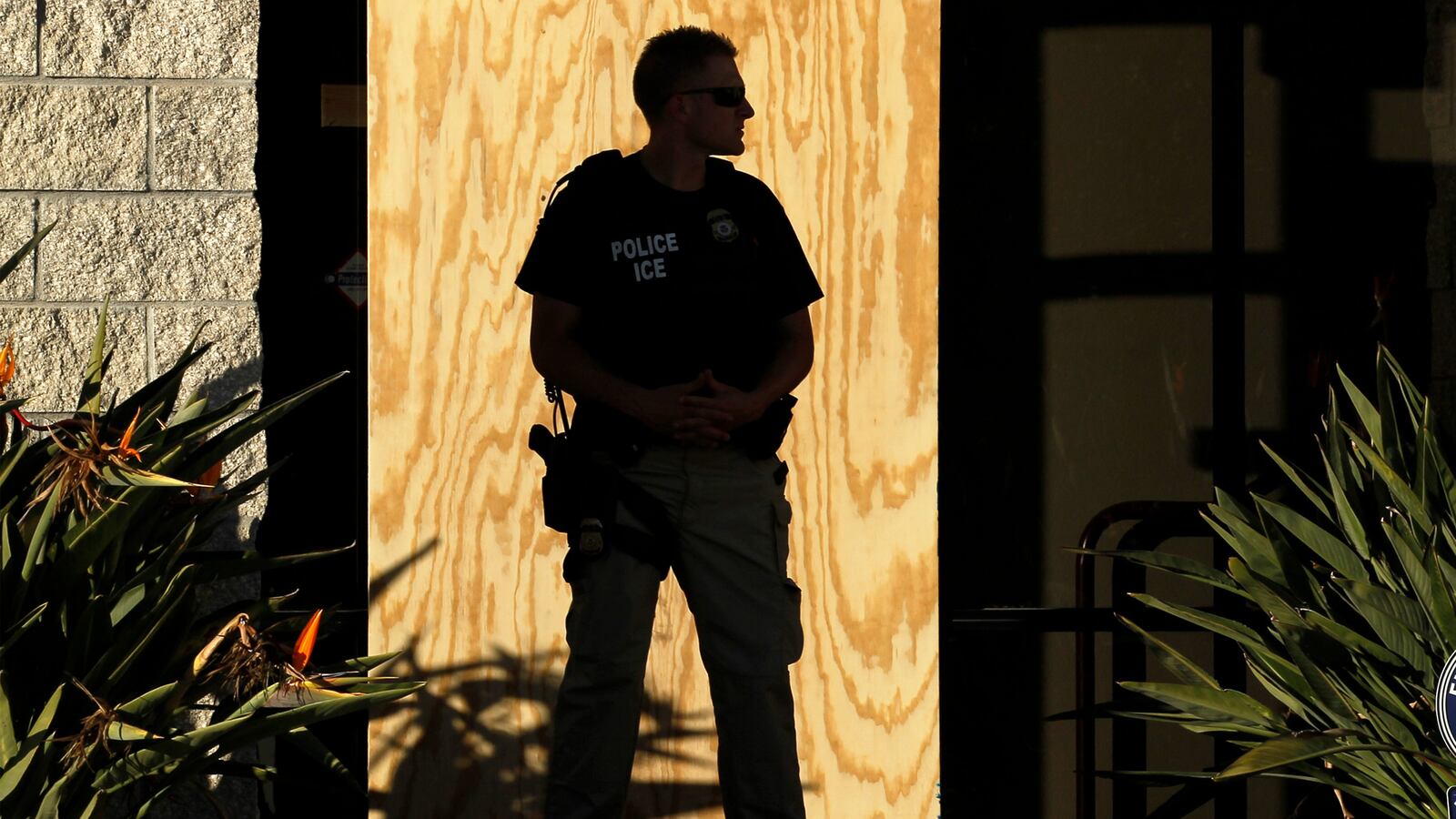A 24-year-old Honduran woman held by U.S. Immigration and Customs Enforcement at a Texas immigrant detention facility went into premature labor on Friday, delivering a stillborn baby boy four days after she was apprehended by Border Patrol agents, the agency said on Monday.
The woman, who was not named in the press release outlining the circumstances around the stillbirth, remains in ICE custody.
In a statement, ICE explained that the incident was not revealed to the public for three days because, for investigative and reporting purposes, “a stillbirth is not considered an in-custody death.” If it were, this would be the first such death of a person in ICE custody in 2019, and the third minor to die in an immigration agency’s custody since December.
The woman, whose identity was not revealed by the agency, citing privacy concerns, was apprehended by U.S. Customs and Border Patrol agents near Hidalgo, Texas, on February 18. While in USCBP custody, the release stated, the woman was taken to an unnamed hospital and received two medical screenings before being cleared for release on February 21. She was transferred to ICE custody the next day.
She was 27 weeks into her pregnancy, and four days into her detention, when she began complaining of abdominal pains on Friday evening while being processed for release at the Port Isabel Service Processing Center near Los Fresnos, Texas. After being examined by ICE’s Health Service Corps (IHSC), the woman was ordered to be sent to the hospital, and emergency medical services were called.
“At that time, she conveyed that the baby was coming,” the ICE release states.
The woman went into premature labor, delivering an unresponsive boy before medical services arrived. IHSC attempted to resuscitate the child with CPR, and both mother and son were transported to Valley Baptist Medical Center in Harlingen, Texas, a 40-minute drive from the Port Isabel facility. There, the infant was pronounced dead.
The woman is awaiting medical clearance by ICE, “after which she will be released from custody,” according to the release.
Under ICE policy, pregnant women in their third trimester—which begins in the 27th week of pregnancy—are not supposed to be detained, “absent extraordinary circumstances.” ICE policy also dictates that Congress, non-governmental organizations and the media be notified of detainee deaths within two business days.
Speaking on background, an ICE spokesperson told The Daily Beast that the agency “decided to make a proactive release of information once we had all of the information and treat this with the same protocols as an in-custody death in order to be transparent.”
In response to additional questions regarding the name of the hospital the woman was originally examined in, why stillbirths are not considered in-custody deaths, and whether ICE keeps track of such incidents internally, the spokesperson said that ICE is “not providing additional identifying details other than what’s in the press release.”
The incident is likely to refocus public scrutiny on the issue of medical safety in immigrant detention facilities run by USCBP and ICE, as well as the Trump administration’s reversal of a policy that generally forbade the detention of undocumented pregnant women. Under new ICE policy updated to align with President Donald Trump’s “zero-tolerance” immigration mandate, that presumption of release for pregnant detainees ended.
“The death of a stillborn child is yet another another horrific example of ICE’s inability to treat migrants with the dignity and respect they deserve,” Erika Andiola, chief of advocacy with RAICES Texas, told The Daily Beast. “Pregnant migrant women should not be locked up. Keeping them in jail is a Trump administration policy. It’s inhumane and we can’t let it stand.”
While the scant details released by ICE make it difficult to determine the cause of the woman’s stillbirth, Trump administration policies on the border have exacerbated health issues in immigrants seeking asylum, said Michelle Brané, director of the Migrant Rights and Justice program at the Women’s Refugee Commission.
“Especially because of the way that the U.S. government has been metering ports of entry,” Brané said, referring to a policy that only allows a few asylum seekers entry into the country at a time, “people are arriving in more and more precarious health. Especially for a pregnant woman, it’s not surprising that she arrived in distress.”
In Brané’s experiences, “custody is never a good place for pregnant women,” no matter what trimester they are in.
“Being in immigration custody is problematic when you are pregnant, no matter what phase of pregnancy you are in,” Brané said. ‘Take into account the effects of stress and fear and anxiety that are clearly exacerbated when someone is in immigration custody, and maybe this is something we’ll see more of.”






